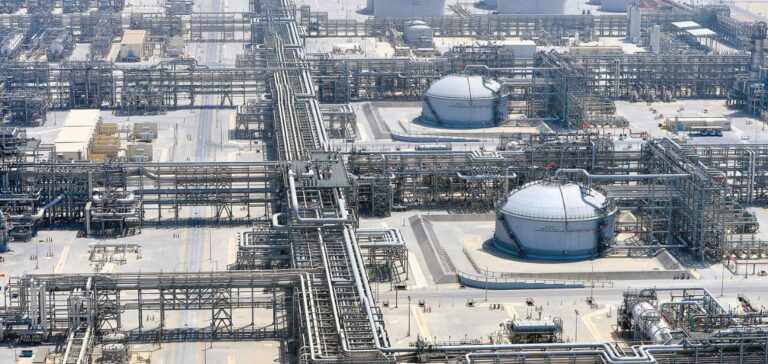Saudi Aramco has announced lower-than-expected official selling prices (OSP) for its Asia-bound cargoes for September.
This decision comes against a backdrop of low refining margins in Asia and fragile local demand, in parallel with an expected increase in production by the OPEC+ group.
PSOs below expectations
In early August, Saudi Aramco raised the OSP differential for its flagship grade, Arab Light, by 20 cents per barrel, setting it at a premium of $2 per barrel to the Oman/Dubai average.
The differentials for Arab Extra Light and Super Light were also increased by 10 to 20 cents per barrel, while those for Arab Medium and Heavy remained unchanged.
Pre-announcement forecasts were for an increase of 30 to 80 cents per barrel for Arab Light and similar increases for Arab Extra Light and Super Light.
Arab Medium and Heavy grades were expected to see slightly higher increases, in the range of 10 to 20 cents per barrel, according to S&P Global Commodity Insights.
A troubled Asian market
Aramco’s adjusted PSOs reflect an Asian market under pressure, with low refining margins and reduced domestic demand. OPEC+’s decision to maintain its policy of phasing out voluntary production cuts from October also influences this revision. Current OPEC+ plans call for eight members, including Saudi Arabia, Russia, Iraq and the United Arab Emirates, to begin gradually lifting around 2.2 million barrels per day of voluntary production cuts between October 2024 and September 2025.
Correction of accumulated premiums
Aramco’s PSOs have been overvalued relative to the spot market over the past year.
Current conditions and the imminent increase in production offer Aramco the opportunity to align its OSPs with spot prices.
According to trading sources, the company appears to be correcting some of the accumulated premium.
A trader explains: “Aramco is partly correcting the premium that had built up in their OSPs over the past year. Now that OPEC+ exports are rising and demand is falling, this premium should disappear.”
Low refining margins
The October loading cycle is bearish, with refining margins in Asia remaining relatively weak despite a slight recovery from May’s multi-year lows.
Platts, a division of S&P Global Commodity Insights, valued the Dubai-Singapore net cracking margin at $2.74 per barrel on August 2, down 9 cents on the previous day, a far cry from the $4-8 per barrel seen at the start of the year.
Key prices and spreads in the Dubai complex have also fallen in recent days.
The Dubai crude swap for the second month of October was valued at $75.40 per barrel on August 5 at 11 a.m. Singapore time, down 3.7% on the Asian close of August 2, reaching a low not seen since January 3, when it was valued at $74.92 per barrel.
The intermonthly Dubai swap spread for October-November also plunged, probably reflecting the increase in OPEC+ supplies from October onwards.
The spread was valued at 35 cents per barrel on August 5 at 11 a.m. Singapore time, down 15 cents on the previous week.
Aramco’s price adjustment reflects the reality of an Asian market facing persistent challenges, pointing to an adapted strategy for navigating this difficult economic context.
By offering more competitive PSOs, Aramco seems intent on sustaining its market share in Asia while responding to the complex dynamics of the global energy market.






















